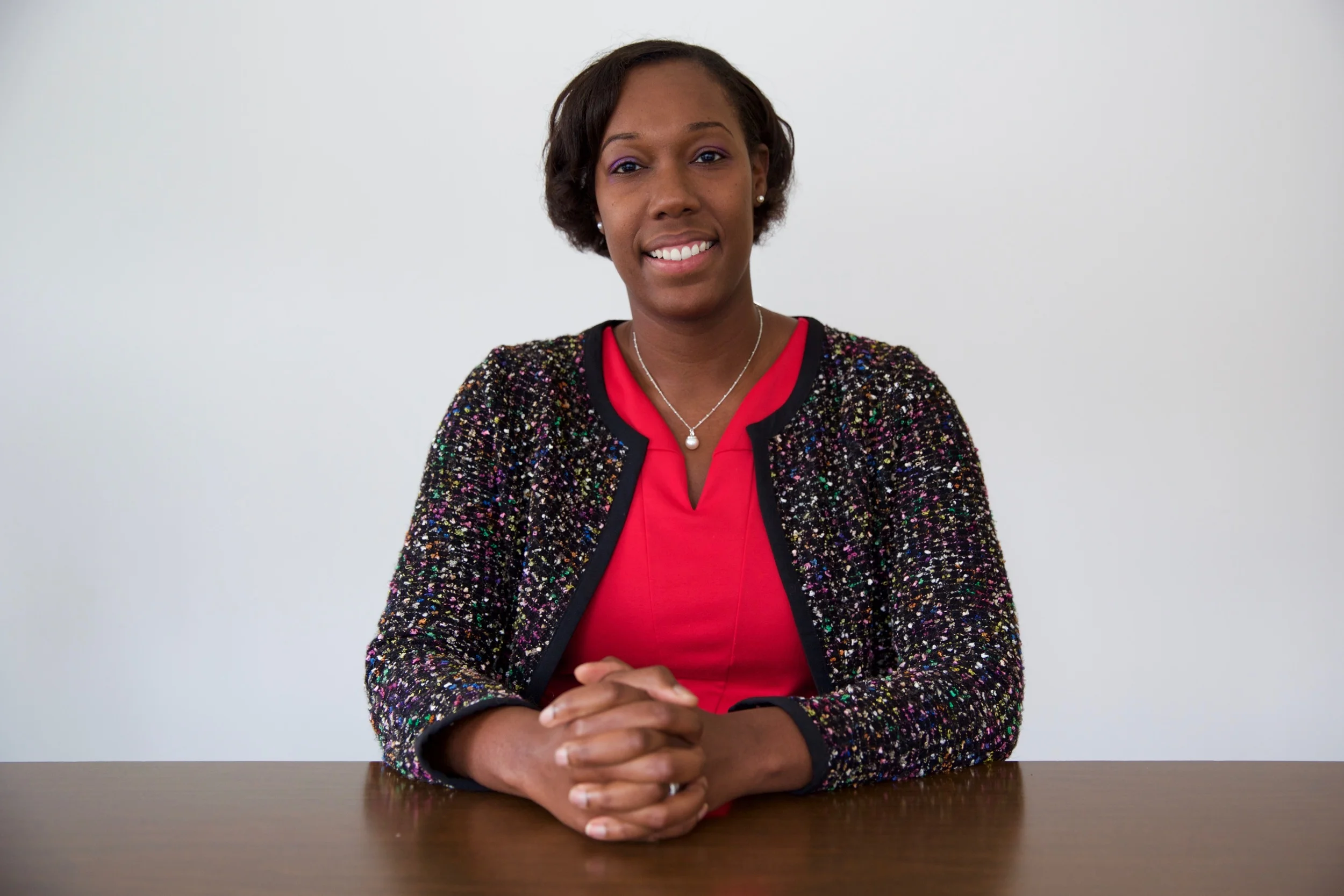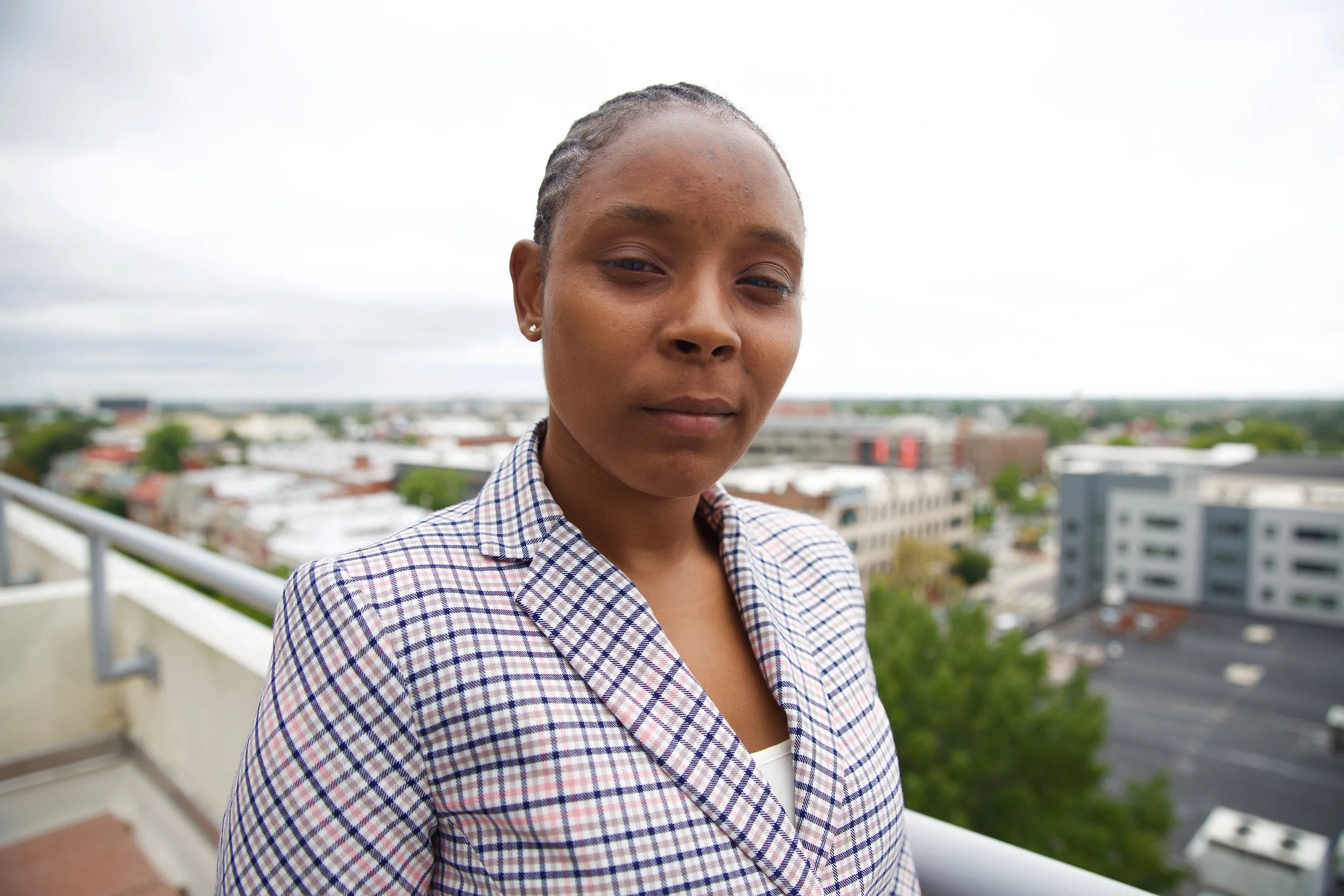Richmond Justice
STORIES + PORTRAITS
Jennifer | August 26, 2016
Jennifer McClellan was elected to the Virginia House of Delegates in 2005. She represented Virginia's 71st District, including portions of the Fan, Church Hill, and Northside, as well as part of eastern Henrico County. In January 2017, she was elected to the Senate of Virginia. She declared her candidacy for Governor in June 2020.
Last year, the Center for Public Integrity came out with a report showing that Virginia leads the nation in the percentage of students referred to law enforcement for misbehaving in school. As a member of the House Education Committee and the Courts of Justice Committee, I’d heard about the level of referrals and the disproportionate impact on students of color and students with disabilities. But the numbers were jarring. We learned that Virginia’s rate of referral was three times the national average. I knew we had to do something. I knew we needed a multifaceted approach, including legislation. I knew we needed to ask: Have we over-criminalized childhood?
I wasn’t the only one asking. Governor McAuliffe and his Children's Cabinet were asking that question as part of their Classrooms, Not Courtrooms initiative. Alfred Durham, the Richmond Chief of Police, looked through reports to learn why students in this city were being referred to law enforcement. He found offenses like talking back to teachers, disrupting class—the sort of things that all of us did as kids. Like me, Chief Durham knew that referrals for ordinary misbehavior stemmed from “zero tolerance” policies on drugs and weapons. Starting in the 1990s, schools here and around the country began cracking down on even minor offenses out of fear that youthful indiscretion would lead to violent crime. This enforcement was enabled by school resource officers—armed, uniformed police officers—who were assigned to schools in the wake of school shootings and rising public concern over drug use among young people. Across the United States, these officers began citing students for misbehavior previously handled by teachers and principals. But the problem was particularly thorny here in Virginia.
Under Virginia law, the job of a school resource officer is to ensure safety and reduce truancy. But some resource officers—those compensated by a state grant program—were also tasked with enforcing school codes of conduct due to an inconsistency in the section of the Virginia Code describing their work. Was this contributing to a higher number of cases in Virginia being handled by police officers instead of teachers and principals? Most likely, yes.
“Have we over-criminalized childhood?”
In the most recent session of the House of Delegates, I introduced a bill with bipartisan support to fix this quirk in the law. Fortunately, most of our colleagues agreed: Enforcing school codes of conduct shouldn’t fall under the purview of police. We passed a new law getting rid of the piece of the code requiring school resource officers to do the work of teachers and principals. This should help to reduce the rate of referrals to law enforcement.
But we have much more to do. The biggest challenge involves arrests of students for disorderly conduct. That category, inherently vague, has become a catch-all for all sorts of minor misbehavior that was once handled by the school discipline process, not law enforcement. And it’s often children with disabilities whom we find in the most troubling stories involving disorderly conduct.
We heard the story of a 14-year-old with major depression and anxiety locked in a seclusion room at a specialized school for students with disabilities. He was charged with disorderly conduct and destruction of property when he broke the doorknob trying to get out. A 6th grader with autism was sent to the principal’s office and, in an effort to release stress, kicked a trashcan on the way out of his classroom. This 11-year-old child was charged with disorderly conduct. In the most recent legislative session, I co-sponsored a bill that would have made it impossible to charge these kids, namely those younger than 14, with disorderly conduct—and to recognize that all young children, those with and without disabilities, are still learning to deal with their emotions and thus should be treated differently than older kids. The bill failed. Folks on the criminal courts committee worried that the law would create too broad of an exemption for unruly behavior in school that they felt should be dealt with by armed, uniformed police officers.
Where there are laws that need to be changed, we should change them. But we have more work to accomplish than can be completed in a single legislative session. One of the measures I'm considering is a study resolution that would bring all of the stakeholders to the table to really look at this issue comprehensively and make recommendations. After all, there are efforts underway outside of the legislative process to reduce referrals to law enforcement.
“Where there are laws that need to be changed, we should change them.”
In Henrico County, for example, the police chief has redesigned the referral form to really force his officers to ask, “Is this type of misbehavior deserving of referral to law enforcement? Or is this misbehavior that should be handled by the principal?" Those of us in the legislature need to know more about what’s happening and what’s working.
Research shows that the earlier and more frequently a child is introduced to the criminal justice system, the likelier they are to fall into risky or criminal behavior—or, to be victimized—so we have a moral imperative to address this problem. In addition, it is incredibly expensive and an inefficient use of government resources to incarcerate someone for lengthy periods. We are able to identify behaviors and risk factors that can lead people down a path to commit crime and wind up incarcerated for life. There are evidence-based interventions that can interrupt that process. It’s the morally right thing to do. It makes economic sense. And it will make communities safer. We must be willing to acknowledge all of that, and then come together to ask, "Where do we go from here?"
Criminal justice reform can be a bipartisan issue. I co-sponsored two bills dealing with disorderly conduct—both were introduced by Republicans. Both Democratic and Republican governors have focused on the restoration of voting rights for ex-felons. Both Democratic and Republican governors have focused on creating job opportunities for those completing sentences and reentering society. Criminal justice reform needs to be bipartisan, because whether we want to admit it or not Democrats, Republicans, and Independents are all affected by poverty, crime, and the status quo. The only way we will make progress on criminal justice reform is if it’s bipartisan. If people aren’t willing to have a frank discussion and look beyond their own experiences and comfort levels to see what other people are experiencing, then we won’t make progress.
— interviewed August 22, 2016








